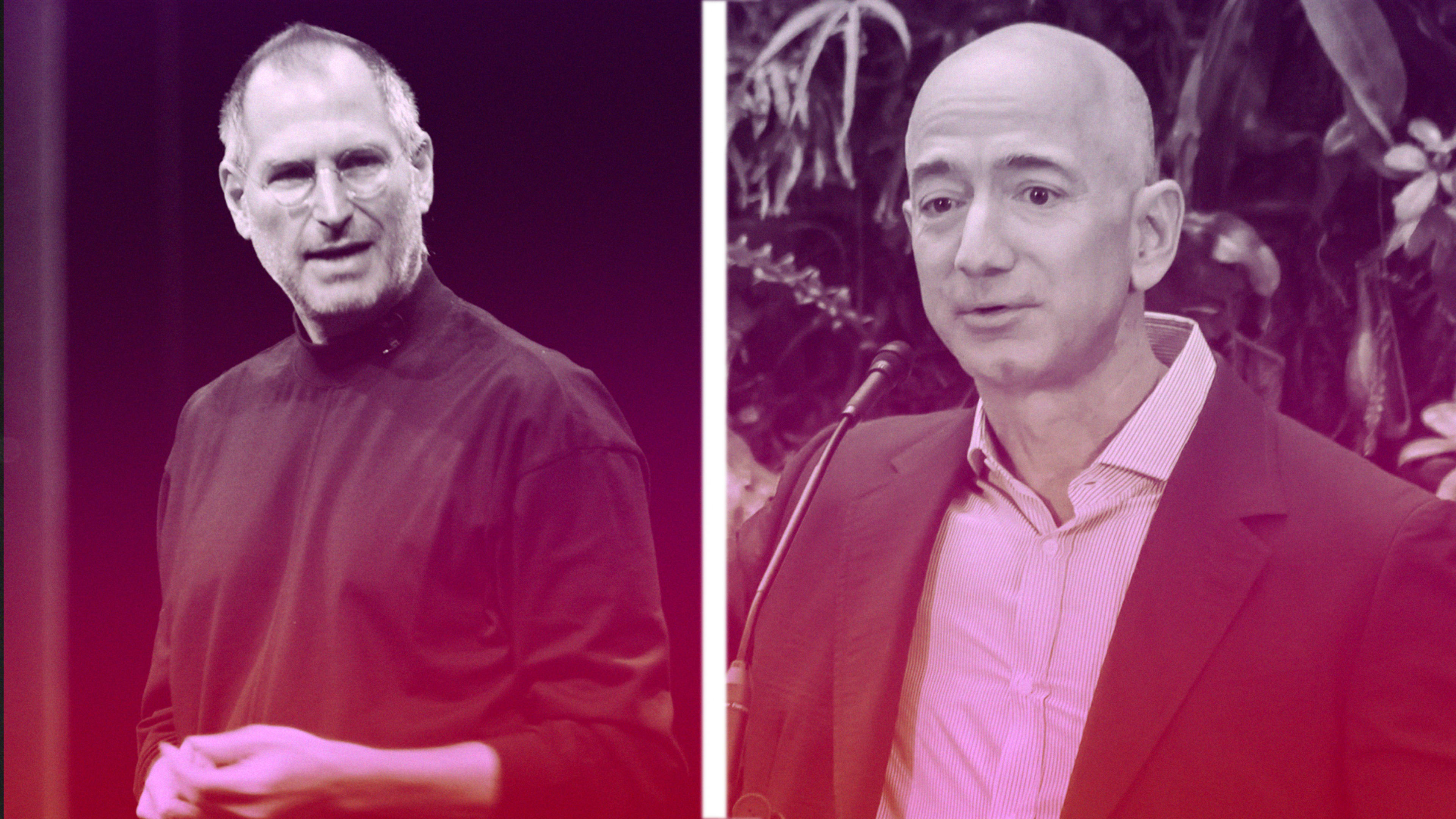First-generation immigrants who relocated to the U.S. to seek a better life are responsible for the founding of some of the largest and most important U.S. companies. Those companies are generating billions in revenue and creating millions of jobs year after year.
We’re highlighting some of those best-known immigrants, but this list is far from complete when it comes to highlighting just how important immigrants are to the U.S. economy. That’s for two reasons.
A world without Apple and Amazon?
First, this list only includes a handful of first-generation immigrants who left their mark on America. It does not include second-generation immigrants–that is, Americans born to first-generation immigrants. One such second-generation immigrant is Steve Jobs. There would be no American computer company called Apple had Jobs’s father, Abdul Fattah Jandali, not been allowed into the U.S. as a political migrant from the Syrian city of Homs.
Think about that: Had the U.S. shut out this one Syrian refugee, the tech world today as we know it would be fundamentally different–no doubt, for the worse. Further, Amazon founder Jeff Bezos is the son of a Cuban immigrant. That’s two of the largest U.S. companies in history that owe their existence to immigrants. As a matter of fact, 216 companies on the Fortune 500 were founded by immigrants or their children. How different would our country be had we not allowed those founders or their parents in?
The far-reaching entrepreneurial spirit of immigrants
Second, though they may have started some of the U.S.’s largest, most famous, and successful companies, the entrepreneurial spirit of immigrants aren’t limited to the handful of major successes listed here. Research shows that immigrants are more likely than native-born people to start their own businesses in their adopted homelands. A full 25% of all entrepreneurs in the U.S. are immigrants. The reasons as to why an immigrant is more likely to start their own business are complex, but an interesting read. A large number of immigrants are actually creating jobs: for themselves, their employees, and through contractors and suppliers.
With that being said, here are 13 first-generation immigrants to which the U.S. economy owes a great debt.
AT&T
Do you like your phone? You can thank Scottish immigrant Alexander Graham Bell. He founded AT&T in 1875 and fundamentally changed the way the world communicates. In 2017, AT&T had over $190 billion in revenue and employed over a quarter of a million people.
Big Lots!
Love saving at the discount retailer? Russian immigrant Sol Shenk is responsible for that. He founded Big Lots! in 1967. Today it has over 1,400 stores and brought in over $5 billion in 2016. It employs over 11,000 people.
Capital One
The “What’s in Your Wallet?” banking and finance leader was founded by British immigrant Nigel Morris in 1994. With over $27 billion in revenue in 2017, it employs almost 50,000 people.
Colgate
The oral hygiene company was founded in 1806 by Brit William Colgate. The company originally sold starch, soap, and candles in Manhattan before becoming the Colgate toothpaste company in 1873. In 2014, Colgate employed over 37,700 people and in 2016 had $16 billion in annual revenue.
eBay
eBay was founded by Pierre Omidyar, who is from France. eBay changed the way we shop online and launched a platform for thousands of small businesses across the country. In 2017, it brought in almost $10 billion in revenue and employed over 14,000 people.
Kraft Foods
The company was founded by Canadian James L. Kraft in 1923. Today it markets brands in 170 countries worldwide. Twelve of its brands bring in $1 billion yearly. It employs 22,000 people directly.
Kohl’s
The department store was founded by Polish immigrant Maxwell Kohl in 1962. As of 2016, it brought in over $18 billion in revenue and employs 136,000 people.
The search giant you use every day was cofounded by Russian Sergey Brin in 1998 and permanently changed the face of the internet. Now one of the largest companies to ever exist, Google employs over 85,000 people. In 2017, it had revenue of over $110 billion.
Panda Express
Love orange chicken? Then you can thank a couple of Chinese immigrants for this mall food-court staple. It was founded by Andrew and Peggy Cherng, and Andrew’s father, Master Chef Ming-Tsai Cherng. In 2014 it had $2 billion in revenue and employed 24,000 people.
Pfizer
The pharmaceutical giant was founded by Germans Charles Pfizer and Charles Erhart in 1849. In 2017, it brought in over $52 billion in revenue and employs 96,500 people.
RadioShack
The ’80s and ’90s “Apple store” was founded by two immigrants from England, Theodore and Milton Deutschmann, in 1921. In its heyday, RadioShack had 7,300 stores and boasted that 95% of American households were within three miles of one of its stores.
Tesla
The company that proved there’s a demand for electric cars was founded by Elon Musk, a South African immigrant, in 2002. Tesla and his other company, SpaceX, are responsible for 18,000 jobs.
Yahoo!
The ’90s search giant and web portal was cofounded by Taiwanese immigrant Jerry Yang in 1994 when Yang was 34. Yahoo currently employs 8,600 people and brought in over $5 billion in revenue in 2017.
Recognize your brand’s excellence by applying to this year’s Brands That Matter Awards before the early-rate deadline, May 3.
